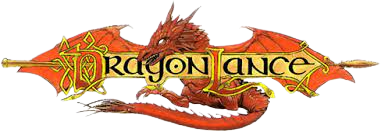
1 Woman, 2 Wars, 3 Timelines: Destina Rosethorn’s Journey to Destiny
A Character Arc You Don’t See Coming
I just closed Dragons of Eternity, the final installment in the Dragonlance Destinies trilogy by Margaret Weis and Tracy Hickman, and I’m still reeling. Rarely have I seen a character undergo such a powerful, layered transformation across three books. When we first meet Destina Rosethorn, she doesn’t exactly demand sympathy. She’s proud, rigid, and clearly sheltered by her noble upbringing. Her entire worldview is wrapped in tradition and ideals—an unwavering belief in honor, structure, and the righteousness of the Solamnic Order. It’s easy to see her as another archetype in fantasy: the grieving daughter who believes her tragedy is exceptional.
But what’s incredible about Destina is that she refuses to remain that archetype. Her grief, which initially seems self-centered and even reckless, is the seed from which an unforgettable arc of redemption and growth blooms. And it’s not clean. It’s not glamorous. It’s painful, messy, and deeply, deeply human. By the time you reach the final pages of Dragons of Eternity, Destina has become not just a strong female protagonist, but one of the most quietly compelling figures in the Dragonlance universe. Her journey is an emotional excavation, a deconstruction of privilege and pride, and a testament to the power of choosing growth over despair.
Dragons of Deceit: A Flawed Beginning with Deep Roots
Destina’s story begins with heartbreak, and her initial response is entirely believable—even if it’s hard to watch. When her father, Sir Gregory Rosethorn, dies in the War of the Lance, Destina’s world crumbles. She loses not just her parent, but her identity, her home, and her future. Her response isn’t noble stoicism or graceful sorrow; it’s desperation. She clings to the idea that she can fix everything if she just finds a way to turn back the clock. That one decision defines the first book, Dragons of Deceit.
Her attempts to manipulate time by using the Device of Time Journeying feel impulsive, even irresponsible, and they are – but they’re also born of grief. And that’s what makes it so powerful. Destina doesn’t want to conquer the world. She doesn’t want revenge. She just wants her father back. And in that very personal motivation, we see the rawest version of her: someone trying to take control in a world that has completely betrayed her sense of order.
We also see how deeply her Solamnic upbringing shaped her perspective. She believes in honor, yes, but also in the illusion of fairness. That good people are rewarded, that duty is sacred, that the world follows rules. The death of her father—a good, noble man—shatters that illusion. Her arc begins not with rebellion, but with the desperate need to restore a broken worldview. And in chasing that restoration, she causes far more harm than she understands.
Dragons of Fate: Time Travel and Harsh Truths
The second book, Dragons of Fate, is where Destina’s inner world begins to truly shift. After using the Device of Time Journeying, she’s thrown into a fractured reality, one where major figures like Sturm Brightblade are still alive, and events from the War of the Lance no longer align with what we, the readers, know to be true. It’s a disorienting and powerful experience, and Destina is forced to grapple with what she’s done.
This isn’t the heroic journey she envisioned. It’s not a triumphant restoration of her father’s legacy. It’s a landscape of unintended consequences—and slowly, painfully, Destina begins to realize that tampering with fate doesn’t fix grief. It only spreads it. The people in this new timeline aren’t better off. Some are worse. Some don’t even exist. And for the first time, Destina is forced to consider that her pain, no matter how intense, doesn’t justify reshaping the world.
Her emotional development is beautifully written here. She becomes more introspective, more compassionate. She starts to listen instead of lecture. She starts to see the people around her—not as pieces on a chessboard, but as individuals with stories, fears, and agency. Her sense of honor is no longer just about family or Solamnic ideals; it begins to expand to a broader, more universal morality.
And perhaps most powerfully, Destina begins to forgive herself. She acknowledges the damage she’s caused, and instead of collapsing under guilt, she chooses to act. Not to undo, but to make right. It’s that distinction that sets her apart and sets the stage for the final leg of her arc.
Dragons of Eternity: A Heroine Forged by Time
By the time we reach Dragons of Eternity, Destina is no longer the girl who believed she could fix the world by changing the past. She’s a woman who has endured that belief, watched it unravel, and still found the strength to keep going. This book is the payoff—not just in plot, but in character.
The timeline is breaking down. The River of Time is flooding its banks. The consequences of her actions have reached a cosmic scale, and yet, Destina faces it all not with panic, but with resolve. That doesn’t mean she isn’t afraid. It means she understands the stakes, accepts them, and chooses to act anyway. That’s courage. That’s heroism.
What stands out most in Dragons of Eternity is the subtlety of her strength. She doesn’t suddenly become a great warrior or all-powerful mage. Her strength lies in clarity. In humility. In choosing to trust others. In stepping aside when needed. In sacrificing her own desires for the greater good. Her journey is a masterclass in how to write a redemption arc without losing the core of who a character is.
And emotionally? Her final decisions carry enormous weight. The entire trilogy builds to a moment of profound letting go—not just of her father, but of the version of herself that needed to save him to feel whole. It’s a devastating, beautiful realization: that love and grief can coexist. That we honor the dead not by reversing time, but by living forward with open hands.
Why Destina Belongs Among Dragonlance’s Best Characters
Destina Rosethorn deserves to stand alongside the greats of the Dragonlance canon. Her story isn’t about godlike power or prophecy. It’s about becoming more human. About choosing growth over bitterness, truth over comfort, and integrity over control. Her story echoes the arcs of Raistlin, Goldmoon, Laurana, and Tanis—not in plot, but in emotional truth.
What makes Destina’s arc so memorable is that it feels earned. It isn’t handed to her. She doesn’t stumble into greatness. She walks through fire for it. She screws up. She breaks. She questions herself. And she chooses, again and again, to do better.
For a character who began with so much to learn, her final chapter is a triumph. Not because she “wins,” but because she finally understands what matters. And that’s why her journey matters.
Final Thoughts on Destina Rosethorn’s Arc
The Dragonlance Destinies trilogy is more than just a fantasy adventure. It’s a story about grief, responsibility, forgiveness, and the long, winding road toward becoming someone worthy of the story you want to live. And Destina Rosethorn is the perfect guide for that journey.
So if you’re new to this trilogy, or if you found yourself unsure about Destina in the beginning—trust the process. Her arc is one of the most moving, nuanced, and rewarding in modern fantasy. And by the time you reach the end, you may find that she’s not just a heroine of Krynn—she’s a reflection of all of us who have ever wanted to turn back time, and had to learn, instead, how to move forward.n on choice, consequence, and letting go. And Destina? She’s the beating heart of it all.
